The process of collecting money for your invoices can be tedious and complicated, but it’s an important part of running a business.
Whenever a client misses an invoice payment, it is wise to send them a tactful email that reminds them of the missed payment, whilst ensuring you retain the business relationship.
This is why it’s important to learn how to write thoughtful past due emails to your clients. This skill is necessary when your goal is to ensure that;
- You get paid, and
- You retain your client.
So, in this guide we shall give you helpful tips on how you can do this, and also provide you with some templates that are usable when communicating with your clients professionally.
But first…
What exactly is a past due invoice email?
A past due invoice email refers to a communicative message sent to clients when they are late paying an invoice.
This email should include all of the information about the invoice and especially how much they owe, and when the due date was. It should also feature information on how to make payments, and when they should make payments.
When writing this kind of email, you should ensure that it is polite enough but also ensure that your client understands why it is important to always pay invoices on time, in order to remain in good standing.
Why should you send past due invoice emails?
You should send past due invoice emails when you want to collect on an invoice that has remained unpaid past its due date.
Most clients miss invoice payments because they forgot about the due date, but a few others simply do not want to pay for an invoice.
So a past due invoice email is an official yet straightforward way of reminding them of their previous commitment to the payment.
The email also ensures that the company’s cash flow remains constant to keep the operations going and limit the number of outstanding balances.
How to write a past due email?
This is not a complicated process, although some simple steps should be followed when writing past due invoice emails, including:
- Start by mentioning the invoice on the email’s subject line
This is pretty important because it will immediately give the client a glimpse of what the email is about.
It will catch their attention and remind them immediately of their missed payment. Also, ensure to include the company name and a small note explaining what the invoice was for to provide some context to the email.
- Ensure to have a polite opening
This is crucial. Start the email with a super polite greeting to the client, and remember that you want to request payment, which can sometimes be awkward, but at the same time, it must be done.
Address the client using the name they prefer, and you should also consider using a question or phrase that mentions their purchases. This helps establish a positive connection and reminds them that they did indeed receive the purchase or service before making your payment request.
- Reference the due date for the invoice and the amount due
Next, explain to the client when the invoice was due and the total amount they owe. Ensure to double-check their account and all of the past communications to ensure that you have quoted the right amount.
Also, consider formatting, spacing, and bolding the information to emphasize the most important details, of which one is the amount due.
- Give the client payment options
Even if this is a repeat client that has already conducted business with your company and paid, it is important to provide them with the payment options once again.
This should be a ‘sort of’ call to action that describes to them how to submit the payment. For example, include your bank account number, your online payment link or your card information.
This makes it easy for them to make payments immediately, without having to scavenge in their receipts looking for the payment mode.
Finally,
- Specify the next steps
If necessary, ensure you let them know how your late payment policy works. This includes explaining to them the consequences of non-payment or delayed payment.
You may choose to omit this information depending on the relationship you have with your client, especially if you wish to retain the client, or if it is their first time.
But, if you have a repeat offender, do not be afraid to lay down the law, as the process of recovering your unpaid invoices could be costing you more money over the years.
Let them know that next time you will charge them additional fees for late or non-payment and even let them know that you could pursue legal action against them if this continues.
What exactly is a past due invoice email?
A past due invoice email refers to a communicative message sent to clients when they are late paying an invoice.
This email should include all of the information about the invoice and especially how much they owe, and when the due date was. It should also feature information on how to make payments, and when they should make payments.
When writing this kind of email, you should ensure that it is polite enough but also ensure that your client understands why it is important to always pay invoices on time, in order to remain in good standing.
When do you start chasing an overdue invoice?
As mentioned above, chasing payment for invoices is never smooth sailing, but it must be done. Coming up with an invoice chasing plan will help you accomplish as much as possible when it comes to this exercise.
This will depend on your business practices and what you want to achieve. Some companies will use a timetable and calendar when contacting their customers for each stage of chasing. Others will just ‘wing’ it.
Here are some options;
- Before sending the invoice; – Find the right contact within the company you will use to ask about payment.
- One or two days after sending the invoice. If you are dealing with a new client, you should request receipt of the invoice and ensure that it includes all information.
- Ten days before the payment is due – At this point, it’s good to check in with the client to ensure that your invoice is being processed and due to be paid soon. As the client if the work is in their system and whether it is on the next pay run.
- One to two days past due
During this time, if there is a problem preventing the payment from being made, you should try to find out how you can resolve the issue and then do this at regular intervals till 30 days past the due date.
Remind the client that the invoice is overdue. Again, staying in touch with the client at this stage will ensure you know the kind of problems they are experiencing and why the invoice is past due.
- 30 days + overdue
At this time, you will be forced to warn the client that you may be required to take the next steps if the invoice remains unpaid further.
Tips for writing a past due invoice email
Here are some simple tips you can use when writing excellent past due emails:
- To start with; follow up at the right time;
We have outlined a follow-up strategy above. First, ensure you follow the procedures you have laid out in your company, so you are always on the right track.
One thing you should try to implement is sending the overdue invoice over the weekend as it will have less competition for the client’s attention.
Tuesdays are also great days, as you can imagine how busy Mondays are.
If you tend to have several clients with overdue accounts, send all of the emails simultaneously.
- Include all the information about the invoice in the email
Make it easy for the customer to remember the invoice and that they need to pay. Also, give them options on how to pay the invoice.
Some information you should include;
- The invoice date and number
- The total amount is owing.
- The payment terms include any late fees to be charged.
- Previous letter sent and reminders.
- Payment instructions
- Your contact information
- Tailor the language
Now, this is where you need to be extra careful. Of course, you are angry, you are agitated the client received the goods, but they do not want to pay.
This is a risky email to write when mad, so the first thing you should do is calm down. Of course, the letter you send in the first few days of late payment will not be similar to what you are likely to send at 60 days past due, but all the same, here’s a look at how your tone should be;
- The first 14 days past due;
At this time, you should be polite and friendly. Your aim is to ensure that you do maintain the relationship with your client by gently reminding them of their overdue debt.
- Between 30 and 60 days past due
Now, it may be hard to stay professional at this point, but you must. Be firm and show the client how urgent it is for them to pay the invoice. The invoice is extremely overdue, and you should not be afraid to say it.
- 90 days+ overdue
Ninety days is equivalent to three months overdue, and remember that the longer the invoice remains unpaid, the higher the likelihood that it will not be paid at all.
After 90 days have elapsed, turning the invoice over to a collections agency is now time.
Any email you send at this point should be to notify the client that their debt has been sent to a collections agency.
- Late penalties
Late payment penalty fees should be discussed with the client at the start of the project. This should be included in the contract so you don’t ambush the client with late fees when the invoice becomes overdue.
If you do this, you will sour the relationship. You cannot implement new rules when it suits you. Everything that pertains to the contract must be clearly outlined on the contract.
So, late fees refer to certain amounts or percentages of the total invoice value that are charged when the invoice becomes due.
For example, you can let the client know that you will charge them a certain interest percentage divided into 12 months for each month they default on the payment.
E.g. if the interest charged is 18%, this is divided by 12, which means that the late payment charge on the invoice will be 1.5% each month.
Please note that not every business is comfortable charging late fees, which is understandable as they are afraid of losing their clients. Still, if this is something that your company has established as precedence for doing business, you should do it.
- Offer a payment plan
As an entrepreneur, your goal is to make money, and if your client is having trouble paying you, give them the option of paying the money in instalments.
Take the invoice amount and divide it into manageable chunks. It is not ideal, but at least you will increase the chances of getting paid.
- Always be polite
Being polite in your email for an overdue invoice is not just for courtesy purposes, but they say that “you catch more flies with honey than vinegar.” Exasperating your customer with a tough and insulting email will only worsen things.
Start the email with a ‘thank you for your business,’ and use the words ‘please,’ and ‘thank you,’ no matter how had it may be.
It will improve the image of your company.
- Create automated reminders
The use of invoicing software will often make it easier for you to remember when you should follow up and request a payment.
You should try and set the reminders to be sent after specific periods such as one day, 14 days, 30 days, 60 days, etc.
The invoice software will automatically add the late fees to the total invoice amount.
Past due invoice email subject line examples
The past due email invoice subject line is just as important as the email itself. Here are some samples of email subject lines that you can include in your email;
For the slightly overdue emails, you can add the phrase;
‘For your convenience.’ This is a day after the due date, say; ‘For your convenience we are sending you a reminder for invoice #12345 that was due yesterday.’
Use other phrases like;
‘Your account appears to be overdue’
Use reminders such as ‘As you know invoice number XYZ is overdue with 15 days, and this is a simple reminder to pay.’
Do not forget to use strong but professional language on the invoices that are more than 60 days overdue. Use words like ‘urgent matter’ and ‘immediate attention.’
You can use a subject line like;
‘Action Required,’ or ‘Important.’
Always ensure that you are direct and include the first line of the letter on the subject of the email.
Say; ‘We would like to inform you that your invoice is currently 60 days overdue.’
Past due invoice templates
The invoice reminder emails should ALWAYS be tailored to the situation. Do not start being friendly and ask about family members. NO. Be specific and to the point. Here are a few templates you can use for your invoice reminder emails:
Between 1 and 15 days Past Due:
Dear (Client Name)
This is a friendly reminder that your invoice number XYZ is now overdue. As per our records, the amount owing is £12345. It is now 7 days past due.
In case the invoice was not received by your organization, please find attached a copy.
In summary, here’s the information about your account;
Invoice Number ——————–
Invoice date ————————-
Amount due ————————-
Due date —————————-
Please, kindly send payment through the payment modes we have listed below. You could also pay through a credit card on our website. www.website name.co
As per our discussions, our payment terms are usually 30 days after the invoice’s date, and any late payments attract a 3% fee.
We appreciate your quick attention to this matter and are looking forward to a great working relationship in the future;
Best,
Your Name and company name
Address
For between 30 and 60 days past due
Dear (Client Name)
We are writing this email in order to inform you that your account is now 30 days past due. The invoice amount is £123456, and it was due on (insert date.)
We already sent you a past due notice on (insert date). We sent this another one on (insert date) and until now we are yet to receive any sort of replay from you.
This matter now requires your urgent attention. Please send us the payment as soon as possible, using the payment modes we have outlined below.
Here’s a summary of your invoice;
Invoice Number ——————–
Invoice date —————————-
Amount due —————————–
Due date ———————————-
Current amount due ————————
As per our payment terms, which we discussed at the time of signing the contract, the invoice should be paid within 30 days from the issue date, and this is clearly outlined in the contract that you signed with us.
The account now has an additional late payment fee of 3%.
Please contact us immediately on the way forward, and when we should expect the payment. This payment should be made through the payment modes listed below, or log on to our website www. Our website.Com for payment alternatives.
Sincerely.
Your name and company
Address
90 days past due
Dear (Client’s name,)
We urgently require your attention to resolve this matter. We have contacted you severally on (insert the specific dates) about your overdue invoice with no reply. Your account currently stands at 90 days overdue.
We kindly request you to remit this payment within the next 10 business days, and if we do not receive the payment by (insert date), we will immediately refer your account to a collections agency.
Immediate payment of the total amount (insert total amount) will ensure that we do not take any further action.
Invoice Number ——————–
Invoice date —————————-
Amount due —————————–
Due date ———————————-
The current amount owing ————————
Our invoice terms as per the contract remain unchanged, which states that payment should be made 30 days after the date of issue.
A late fee of 3% is charged each month, and as your invoice is 90 days late, the total late fee amount is 9% of the invoice.
Please contact us immediately and let us know when you plan on sending this payment. It should be made as per the information stated below, and please use our address for any official correspondence.
Our website will also guide you on online payments and credit card payments. Our web address is www.yourbusinessaddress.com
Sincerely,
Your name and company.
Address.
Should you send a ‘thank you’ note after payment is received?
Yes. It’s always good practice to appreciate a client that actually ends up paying after receiving the past due email.
‘Thanks for paying,’ emails are usually extremely effective when you want to retain the client. A little politeness and appreciation goes a long way.
Your company’s finance team should ensure they remember to do this at all times. The benefits you will glean from sending a simple ‘thanks for paying email’ will go a long way in the future.
Here’s a sample – ‘thanks for paying’ template:
Email Subject:
(Business Name): Invoice Number
Dear (name of the company or person in charge)
Hi,
We just wanted to drop you a quick note letting you know that we received your payment with respect to invoice number XYZ.
We really appreciate this and thank you very much.
If you would like to make another order, please call us on (insert telephone number) and speak with (insert name of salesperson)
You could also reply to this email with your order.
Thank you once again, and we look forward to doing more business together.
Kind regards,
(Sender’s name)
What if payment requests for due invoices don’t work?
In case the past due invoice emails still do not work, here are some options for trying to recover your money;
Mediation
This is a process that tries to resolve conflicts without taking things to court. There is usually an impartial person that acts as a referee in the dispute, and they aim to try and reach a resolution that works for all parties concerned.
A statutory demand is issued when you wish to place a demand on the client to pay the invoice.
Report them
In the UK, there are many different websites where late invoices are reported. These include:
PayOnTime [4]
This website was designed in 1997 by the UK Government, which partnered with various business organisations that were offering SME services. Its primary function is to help UK businesses get paid for their services.
If you have an overdue invoice, then you are likely to find your name on their website. Most businesses have already registered on this site, and they send information about unpaid invoices so that others can see them before getting into business with you.
The Business Disputes Register [5]
This is yet another website that seeks to resolve any conflicts between businesses, including unpaid invoices, which means that you may be reported on the site if you haven’t paid your invoice.
They allow businesses to raise disputes which in the end help erring customers pay up their invoices. Once you pay, the information can be removed, making your record clean.
BRODMIN [6]
This website helps businesses report their experiences on unpaid invoices. They have an online directory that is very simple to use, and any creditor can post your name to show that you did not pay their invoice.
All the information is made public, which means that anyone can see your information and payment history with a said creditor.
Legal action
If the client still doesn’t pay the amount they owe, it’s probably time to take legal action. But, the good news is that; small businesses do not need to get a lawyer at this time.
The UK law allows anyone who is owed money to make a statutory demand for it, but this must be done before the debt exceeds six months, and it must be done in person.
Once the client is served with a statutory demand, they are required to either pay the overdue amount in the next 21 days or agree on how the money will be paid.
After the 21 days?
Now, if the 21 days lapse and payment has still not been made, you have a few options;
If the amount you are owed is less than £750, you are allowed to apply to wind up or bankrupt their company, although this has to happen within the next four months of the statutory demand.
If the amount is more than £5,000, you can submit a petition for bankruptcy to the courts.
It is wise, at this point, to bring in a third party to handle the issue for you, such as a third-party mediator, a solicitor, or another advisor.
In case the amount is above £10,000, your case will be submitted to Money Claim Online. [7]
This is an internet-based HM Courts & Tribunals designed to solve debt collections without necessarily going through the courts.
The client can also choose to take you to a debt collections agency that will handle the matter on their behalf. This agency usually collects debts for a fee.
Documentation needed for taking legal action
The first thing you must ensure is proof that you tried to resolve the problem before taking any legal action. If you have not done this, then the court may go against you.
It would be best if you had the following; Letters, emails, and any other recordings showing that you did try to either use mediation or negotiate with the client.
You can write the initial letter on your own, but it is always advisable to have your solicitor do it for you, as the client is most likely to respect that more.
The solicitor will also ensure that they include all of the information required for your specific situation for the court if you decide to go to court after all.
How to make the money claim
You can make a claim in court for the amount of money you are owed. This is often referred to as “a small claim” or “a money claim.”
This amount can include any interest you have charged the client or compensation you are owed.
The customer may pay as soon as they receive your claim to avoid getting a court order against them. If they do, it will not cost you any more than the original fee, and you will not have to go to court.
If the money owed is a lot, then the situation may become complicated, and you are less likely to receive payment immediately. The claim may go to court if the customer continues to disagree with your claim. This is pretty expensive in the long run.
Also read: What to do if clients do not pay their invoices on time
How to prevent past due invoices
As already mentioned, dealing with past due invoices is never fun. It would be best if you learnt how to prevent having to deal with them.
This means following some rules right from the start when you start negotiating with clients. Before they sign on the dotted line, explain to them the rules.
Here are some tips to help you …
- Start by ensuring you perform a complete background and credit check
When you get a new client, don’t just sign them up instantly. Check them out first. Do a complete background check to identify whether they are reliable and trustworthy.
These checks will provide you with a load of information such as:
- Their identity
- Whether they have any bankruptcies declared.
- Credit enquiries
- Their criminal records.
If it makes sense, take payment before the contract begins
If this is an option, especially with new customers, always go with it as it will avoid any instances of late payments or non-payments.
- Send all invoices ahead of time
Sending invoices and estimates on time, and even before they are due is a great business practice. It will ensure your customers do not claim that they did not receive the invoice as a reason for non-payment or late payment.
- Get the contract signed on time
Have the customer sign the contract before you deliver any goods or services. In this case, they will become legally required to pay you.
This is also a form of personal guarantee and security that the payment will be made as per the requirements of the contract.
- Ensure that the payment terms are CLEAR
Make the contract language crystal clear. The client should not later on claim ignorance or the fact that they did not understand what was clearly outlined.
Read the part about payments terms with the customer paragraph by paragraph and enquire from them whether they understand or not.
- Ensure you gather all of the required information just in case
Always gather the customer’s information such as their correct name, email, mailing address, phone number, etc.
Additionally, you should get information from third parties, so you can be able to investigate how the company carries out their business relationships.
- Keep detailed records
Ensure that you always keep a detailed record of every single transaction with your customers, and any other correspondence that happens between the two of you.
Any emails, letters and invoices received or sent to the customers must be kept. These can be used when needed especially if there are any disputes.
- Always follow up
Consistently following up with your customers before the due dates come around helps you keep in touch with them and ensure that they are aware of the invoices.
Call them, in good time, and if needed, write post due emails and visit their premises for concrete discussions on the way forward concerning the payments.
![How to write past due invoice emails that work [+ tips & templates] 1 Brodmin](https://brodmin.com/wp-content/uploads/2020/10/brodmin-logo-231x71px.jpg)
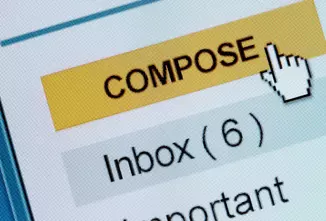
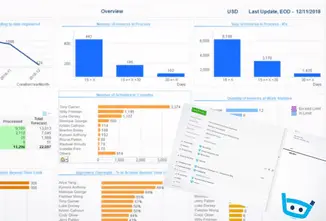
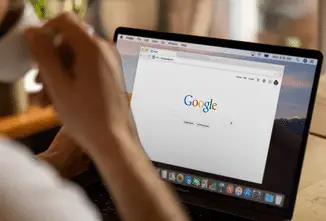
![How to invoice international clients [+ 10-point checklist] 4 Invoicing international clients](https://brodmin.com/wp-content/uploads/2021/10/Invoicing-international-clients-0.webp)
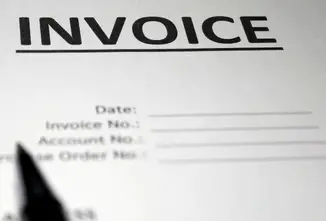

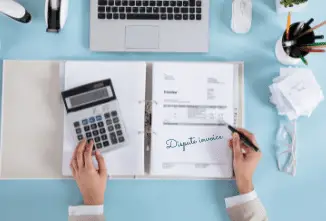
![How to write past due invoice emails that work [+ tips & templates] 9 brodmin.com](https://brodmin.com/wp-content/uploads/2020/11/brodmin-logo-200x60-1.png)
![How to write past due invoice emails that work [+ tips & templates] 10 webauditr.com](https://brodmin.com/wp-content/uploads/2020/11/webauditr-logo-200px-60px.png)
![How to write past due invoice emails that work [+ tips & templates] 11 halr.co.uk](https://brodmin.com/wp-content/uploads/2020/11/halr-logo-200px60px.png)
![How to write past due invoice emails that work [+ tips & templates] 12 clinkco.com](https://brodmin.com/wp-content/uploads/2020/11/clinko-logo-200px-60px.png)
![How to write past due invoice emails that work [+ tips & templates] 13 qrank.co.uk](https://brodmin.com/wp-content/uploads/2020/11/qrank-logo-200px-60px.png)